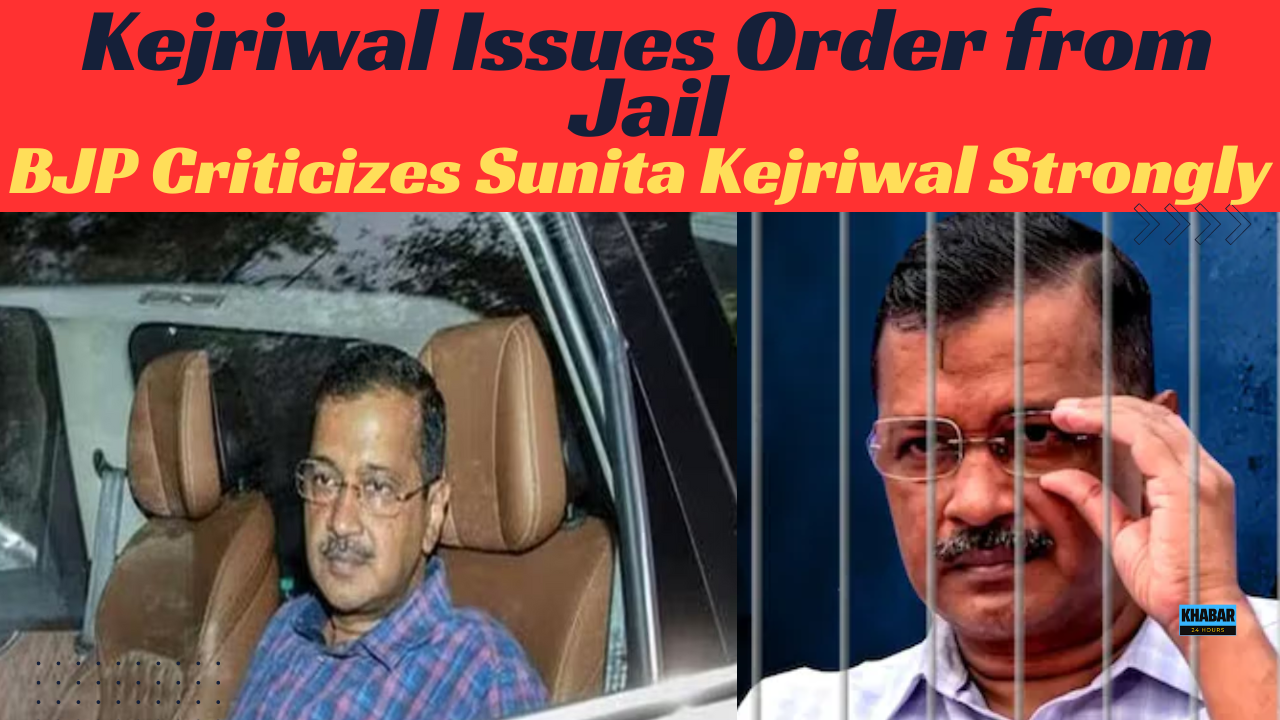
Delhi’s Chief Minister Arvind Kejriwal has issued his first directive since his recent arrest in the liquor policy case, marking a significant turn of events in the political landscape. Last Thursday, he made headlines as the first incumbent chief minister to be apprehended. Amidst this, the BJP has escalated its criticism, particularly targeting Arvind Kejriwal’s wife, Sunita Kejriwal.
The demand from the Bharatiya Janata Party (BJP) for Arvind Kejriwal to step down from his chief ministerial position has been vociferous. However, the Aam Aadmi Party (AAP) has staunchly asserted that Kejriwal will continue to govern, even from his place of detention.
BJP MP Manoj Tiwari delivered scathing remarks against Kejriwal’s intention to run the government from jail, suggesting that governance doesn’t come from behind bars but rather from a position of authority. Tiwari’s criticism extended to Sunita Kejriwal as well, accusing her of a lack of propriety in representing the chief minister’s message to Delhi while he is incarcerated.
Tiwari’s words took a more aggressive tone on Sunday, targeting both Kejriwal and his wife. He insinuated that Kejriwal’s concerns primarily revolve around his personal comfort, aiming to transition from governance to a life of luxury. Additionally, he criticized Sunita Kejriwal’s actions, implying that her recent public appearances lacked a sense of shame.
The political saga continues as Arvind Kejriwal challenges his arrest and detention through legal channels. His appeal to the Delhi High Court underscores his contention that the proceedings against him are unlawful. However, the court’s decision not to grant an immediate hearing and the subsequent rejection of his plea by the Supreme Court further solidify the belief that the legal processes have been adhered to within the bounds of the law.
In response to Kejriwal’s arrest, AAP leaders have organized large-scale protests in Delhi, expressing their discontent with the situation. The ongoing confrontation between political factions adds layers of complexity to Delhi’s political landscape, leaving the future of governance in the capital uncertain amidst these turbulent times.

